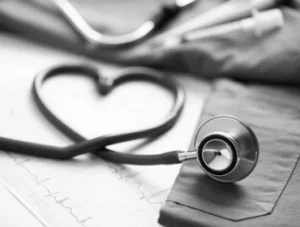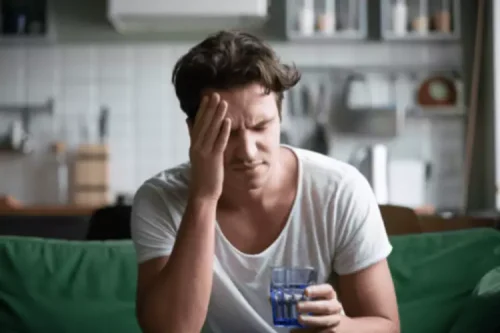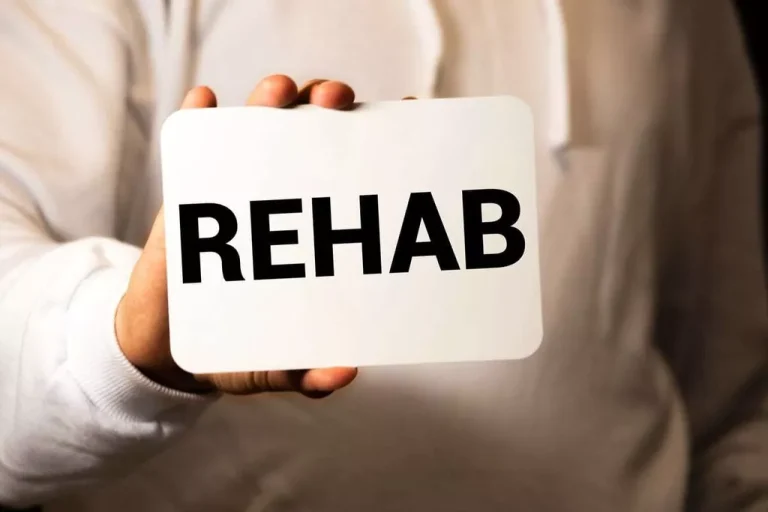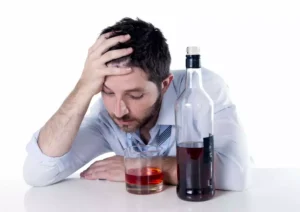
Now, alternatively, if your blood sugar spikes too high and stays high for too long, you can lose nerve function, resulting in something called diabetic neuropathy. If this doesn’t ring a bell, but you’re sweating a lot after eating, then diabetes might be worth investigating. Frey’s syndrome is caused by damage to the parotid glands (the largest salivary glands in your body) or the nerves surrounding them. They’re located right below the ears on each side of the face. All of the above common trigger foods aside, food intolerances and food allergies can make you sweat. Your body has to do a lot of work and expend tons of energy to digest them.
Am I Addicted? Signs, Symptoms & What to Do
- You must seek professional treatment for alcohol misuse and addiction.
- Unlike Frey’s syndrome, other types of gustatory sweating often occur on both sides of the face.
- Night sweats are often self-limiting and not a cause for medical intervention.
It is also important to see a doctor if your night sweats become more frequent or intense over time. Most hangovers only last a few hours, but some can last for upwards of 2 days. On the other hand, if you find yourself sweating the morning after you drink, this is likely a hangover symptom. A major hangover can actually result in a low-grade fever due to a blood sugar drop, dehydration, or even an immune response. In summary, your body may actually produce some extra heat while you are drinking, but most of this finds its way to the surface of your skin or your extremities. This is why you may feel hot, and even sweat profusely when you drink alcohol.
Impacts brain

More alcohol just increases the toxicity of the alcohol already in your body. You’re also more likely to have memory, concentration and coordination issues when you have a hangover. In general, the severity of your symptoms depends https://ecosoberhouse.com/article/what-is-the-life-expectancy-of-an-alcoholic/ on how much you drank and for how long. When you decide to stop drinking and take your sobriety seriously, finding a treatment that can help you through every stage of your recovery can make a significant difference.

Regular sweating after eating vs. Frey’s syndrome
If someone has developed alcohol dependency, they may experience excessive sweating, hot flashes, and night sweats if they stop drinking. Excessive perspiration at night why do i feel hot after drinking or night sweats are commonly accompanied by hot flashes. Night sweats related to alcohol consumption is prevalent in individuals suffering from alcohol dependence.
Night sweats can generally be described as unusual or excessive sweating during the night hours. Excessive sweating, however, may contribute to dehydration in conjunction with symptoms like vomiting and diarrhea. Furthermore, night sweats can also be influenced by factors such as the use of certain medications (e.g. steroids, antidepressants), menopause, and other health conditions. True night sweats cause you to soak your clothing and sheets with perspiration. If they’re severe, you may awaken several times every night to change your clothes and bedding. Interrupted sleep like this is hardly restful, and it can be dangerous.

Treatment for Excessive Sweating after Drinking Alcohol
The combination of “feeling warm” but having a decreased body temperature and cognitive awareness contributes to an increased risk of hypothermia when drinking in cold environments. Additional contributors that can cause you to experience night sweats include the use of certain prescription drugs, low blood sugar, and other alcohol withdrawal symptoms. Excessive sweating can also be a sign of certain medical conditions, a mental health issue such as anxiety, and severe alcohol withdrawal syndrome. Alcohol night sweats refer to the occurrence of excessive sweating during the night, often affecting the face, chest, back, and arms. (1) Individuals experiencing alcohol night sweats may wake up feeling cold due to the body’s production of sweat in response to alcohol consumption.
- If you experience these symptoms along with regular night sweats, you may be going through alcohol withdrawal.
- “Drinking causes the blood vessels near the skin to enlarge, which causes people to feel flushed or hot and as a result triggers the body to sweat,” he says.
- In an attempt to heal themselves, damaged nerves sometimes get mixed up with other nerves, causing a person to produce sweat instead of saliva.
How it feels
To combat that rise in blood sugar, your body releases a hormone called insulin. If your insulin levels get too high, it causes something called hypoglycemia, or low blood sugar, which can cause sweating. You will probably also experience other symptoms like rapid heart rate, tremors, anxiety, vomiting, and if severely dependent, seizures. Excessive sweating may indicate an issue that warrants a medical evaluation, so it is best to contact a doctor if a person has concerns about their symptoms. Frey’s syndrome is sweating due to nerve damage to the parotid gland. It develops on one side of the face in the area of the affected parotid gland.
- Gustatory sweating is similar to Frey’s syndrome, and doctors often use the two terms interchangeably.
- While many people naturally experience a body temperature drop overnight as they sleep, studies show alcohol might actually block this natural cycle when one is intoxicated.
- One of the common symptoms of alcohol withdrawal is excessive sweating.
The central nervous system (CNS) helps to regulate body temperature, blood pressure, and heart function. Alcohol, and alcohol withdrawal, can disrupt normal CNS activity. Alcohol withdrawal can cause excessive sweating because the body’s autonomic nervous system becomes dysregulated.
